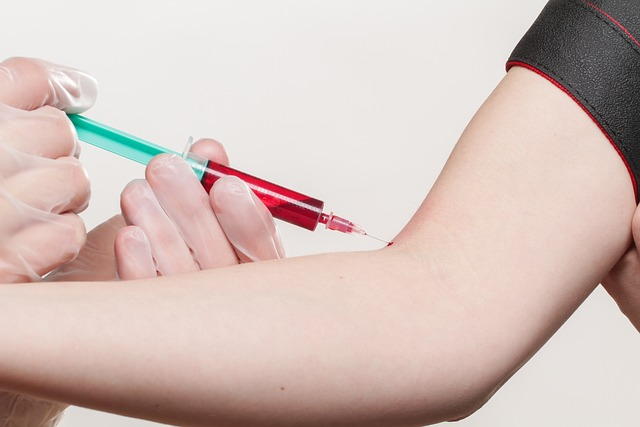Best Supplements For Insulin Resistance

Overview
ToggleInsulin resistance training can be beneficial when managed correctly, it can help with conditions such as polycystic ovary syndrome (PCOS) and diabetes. Insulin sensitivity is essential for the body’s overall health – the more insulin-sensitive your body is, the better it is for removing blood sugar – something necessary for healthy balanced blood sugar.
A healthy diet and exercise cannot be overlooked when it comes to managing blood sugar levels, but supplements for insulin resistance should be used alongside these. We will look at the benefits of using various supplements for insulin resistance.

 You may be sceptical about the benefits of apple cider vinegar, and rightly so. This has been something of a fad in the mainstream media, claiming to solve and help many issues and health problems.
That being said, the management of blood sugar levels is one thing that it does help with. It is not necessarily the apple cider vinegar, per se, but the acetic acid content that is prevalent in it. It is this that helps blood glucose levels to be at a healthy range.
We would recommend diluting apple cider vinegar with water to minimise damage to teeth and the oesophagus.
You may be sceptical about the benefits of apple cider vinegar, and rightly so. This has been something of a fad in the mainstream media, claiming to solve and help many issues and health problems.
That being said, the management of blood sugar levels is one thing that it does help with. It is not necessarily the apple cider vinegar, per se, but the acetic acid content that is prevalent in it. It is this that helps blood glucose levels to be at a healthy range.
We would recommend diluting apple cider vinegar with water to minimise damage to teeth and the oesophagus.

Why Supplements are Helpful for Insulin Resistance
An impaired blood sugar metabolism can lead to serious health issues, including type 2 diabetes, metabolic syndrome, and coronary artery disease. Lifestyle habits and genetics play a significant role in insulin resistance. For example, a diet that is high in processed foods and saturated fats can impair insulin sensitivity. Lack of exercise and smoking can also exacerbate the risk factors. Supplements, alongside a balanced diet, managing stress, and maintaining a healthy weight can significantly reduce the risk of developing insulin resistance and therefore avoid the health complications that come hand in hand with it. It is necessary to consult with a healthcare professional when you want to manage insulin resistance. Your medical history and individual needs should be considered and personalised guidance is recommended.Best Supplements for Insulin Resistance
Without further ado, let’s delve into the power of supplements when it comes to combating insulin resistance.Magnesium
Magnesium supplements are highly recommended when it comes to improving insulin sensitivity. Magnesium deficiency can increase insulin resistance. Intracellular magnesium plays a big role in the process of insulin receptors. However, magnesium deficiency isn’t the only time that you should consider taking magnesium supplements. A study found that taking these supplements for 4 months improved insulin sensitivity for people with and without diabetes. Deficient people should take magnesium, regardless. However, if you are trying to improve insulin sensitivity, taking these supplements will bring benefits. Magnesium citrate is most recommended due to the fact it has good absorption. Including cashews, almonds, pumpkin seeds, and spinach in your diet will also ensure that magnesium intake is adequate.Inositol
While underrated, inositol is a great option if you want to improve insulin sensitivity. In particular, post-menopausal women benefited from inositol, when taking this supplement indicated a decrease in insulin resistance. It is recommended that you take myo-inositol every day. A combined intake with di-chiro increases the benefits. While men and women can take inositol, it is particularly beneficial for women, with a wealth of research finding that it helps to decrease the possibility of PCOS as well as diabetes.Zinc
There are multiple studies into the correlation between zinc and insulin resistance. Promisingly, research has shown that zinc supplementation can improve symptoms of PCOS and lower the chance of developing type 2 diabetes, too. Avoiding a diet with lower zinc intake is highly recommended, this can be done through zinc supplementation. You can also get zinc from foods such as pumpkin seeds, cashews, eggs, and oysters. Ensuring that you have a healthy diet is one of the best ways that you can increase insulin sensitivity and reduce insulin resistance.Apple Cider Vinegar
 You may be sceptical about the benefits of apple cider vinegar, and rightly so. This has been something of a fad in the mainstream media, claiming to solve and help many issues and health problems.
That being said, the management of blood sugar levels is one thing that it does help with. It is not necessarily the apple cider vinegar, per se, but the acetic acid content that is prevalent in it. It is this that helps blood glucose levels to be at a healthy range.
We would recommend diluting apple cider vinegar with water to minimise damage to teeth and the oesophagus.
You may be sceptical about the benefits of apple cider vinegar, and rightly so. This has been something of a fad in the mainstream media, claiming to solve and help many issues and health problems.
That being said, the management of blood sugar levels is one thing that it does help with. It is not necessarily the apple cider vinegar, per se, but the acetic acid content that is prevalent in it. It is this that helps blood glucose levels to be at a healthy range.
We would recommend diluting apple cider vinegar with water to minimise damage to teeth and the oesophagus.
Vitamin D
Vitamin D has been found to play a vital role in insulin function and glucose metabolism. Research has suggested that it enhances insulin sensitivity and promotes insulin production – these two things imply that it will be beneficial for those who have insulin resistance. A large part of the population is deficient in vitamin D, which makes supplementing so much more important. We simply cannot rely on the sunshine to keep our vitamin D levels at a healthy level. Vitamin D deficiency is problematic for many of our body’s functions, including insulin regulation. It is highly recommended that you consult a healthcare professional before using vitamin D as a comprehensive treatment for insulin resistance.Can Supplements for Hangover Relief Also Help with Insulin Resistance?
Yes, the use of the best hangover supplements may indeed help with insulin resistance. Some supplements, such as those containing vitamins B and C, can support liver function and reduce oxidative stress, which may in turn improve insulin sensitivity. Always consult with a healthcare professional before taking any new supplements.
